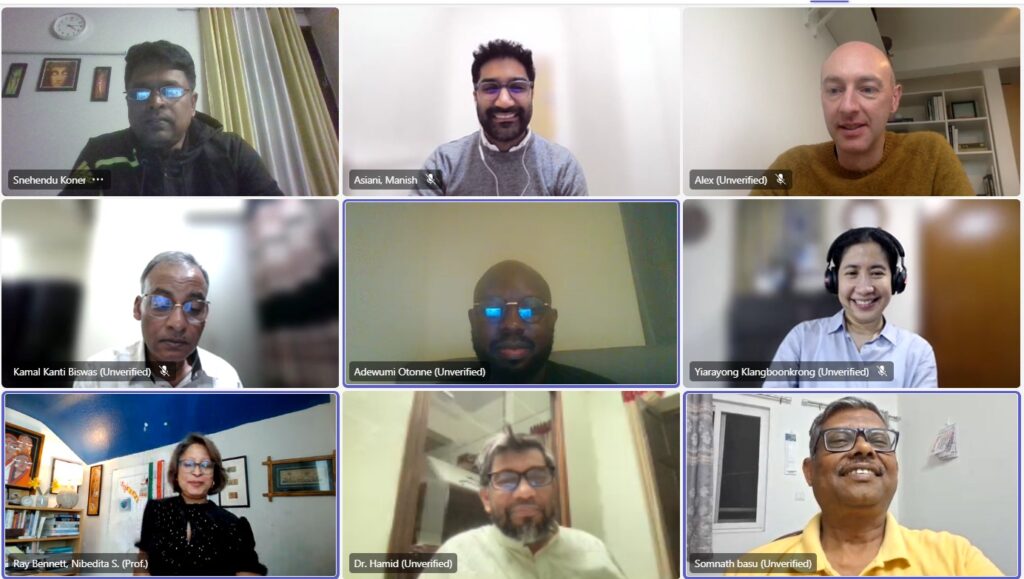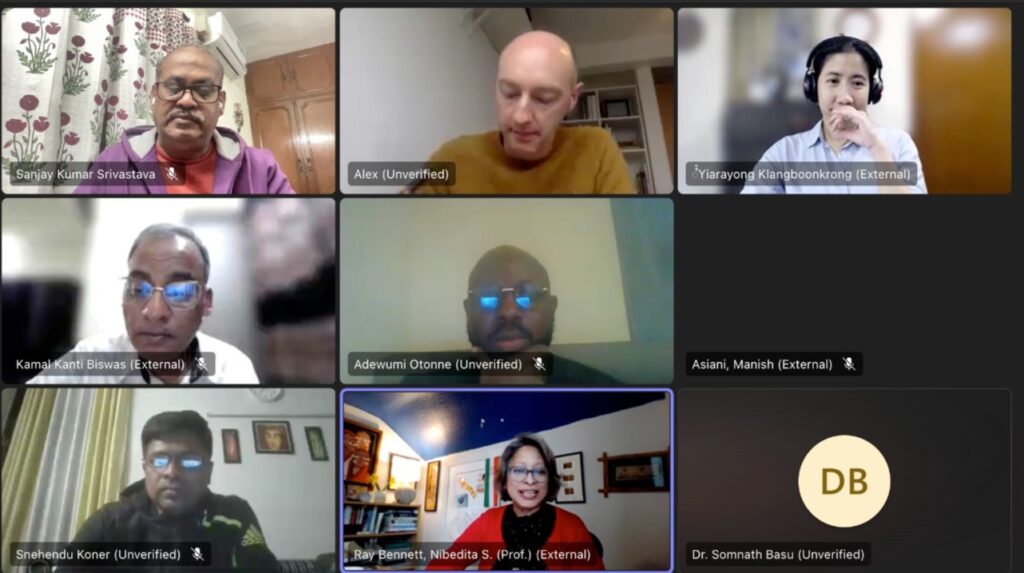DESCRIPTION
Full Title: Facility and Mobile Reproductive Health Kits for Disasters and Crises
Short Title: Facility and Mobile Kits
Duration: March 2025 – March 2026
Funder: ESRC/AHRC SHAPE Catalyst delivered by the ARC Accelerator
Core Team: Prof. Nibedita Ray-Bennett (PI), Mr Alex Skinner and Dr Te Klangboonkrong (Project Coordinators)
Support Members: Ms. Lauren MacLeod
Collaborators (Bangladesh): Dr Elvina Mustary (RHSTEP), Mr Maqbul Bhuiyan (DMA)
Collaborators (India): TBC
Facility and RH Kits
The Facility and Mobile Kits are designed to treat incomplete abortion, missed abortion and post-abortion care management (before and after 12 weeks of missed period of menstruation) during disasters and humanitarian crises. These Kits consist of lifesaving medicines, equipment, consumables and information, education and communication materials.

The Kits are developed based on the principles of localisation – one that gives agency to national actors to develop RH kits with locally sourced medicines, supplies, equipment, and guidelines in readiness for disaster response. Kits can be administered by the suitably trained existing health workforce mandated for handling menstrual regulation and post-abortion (viz. nurses, medical officers, family welfare visitors, and sub-assistant community medical officers) in low and middle-income countries.
Conditions required to position the Facility and Mobile RH Kits
In Bangladesh, the Facility and Mobile Kits must be pre-positioned at primary, secondary or tertiary health facilities (nearer to flood/cyclone shelters in the case of Mobile Kit) before the flood or cyclone season (January to March).
Components
The Facility RH Kit has two options: i) Post-Abortion Care (PAC); ii) Post-Abortion Care (PAC) & Menstrual Regulation (MR). Each option comes in three sizes (small/medium/large). The Mobile Kit comes in one standard small size to ensure portability.

Users, Beneficiaries and Benefits
Users
- National and local governments
- Humanitarian organisations and NGOs
- Private clinics and healthcare practitioners
Beneficiaries
- Poor and vulnerable women of reproductive age in disaster and crises
Benefits
- Kits are cost-effective and can increase the provision and continuity of RH services during disasters and crises;
- They can reduce maternal and neonatal mortality by increasing access to healthcare to the beneficiaries;
- Can contribute towards the UN’s Minimum Initial Service Package (MISP), the Sphere Minimum Standards in Disaster Response, SDG 3 (Target 5.6) and Sendai Goal A and Priority for Action 4; and
- Governments and developmental agencies with limited resources can be supported to achieve the goals above using our Facility and Mobile Kits and capacity-building provision.
Links to the earlier phases of the Facility and Mobile (renamed from Crisis) RH Kits: https://www.avoidable-deaths.net/prototyping-rh-kits/
Project Updates
August 11, 2025: We have been meeting with mentors from the ESRC/AHRC SHAPE Catalyst delivered by the ARC Accelerator team, and discussing how we make promotional and user-focused videos of the Kits. Plus we are excited for the arrival of our demo-kit, to take to organisations and show them how it works!
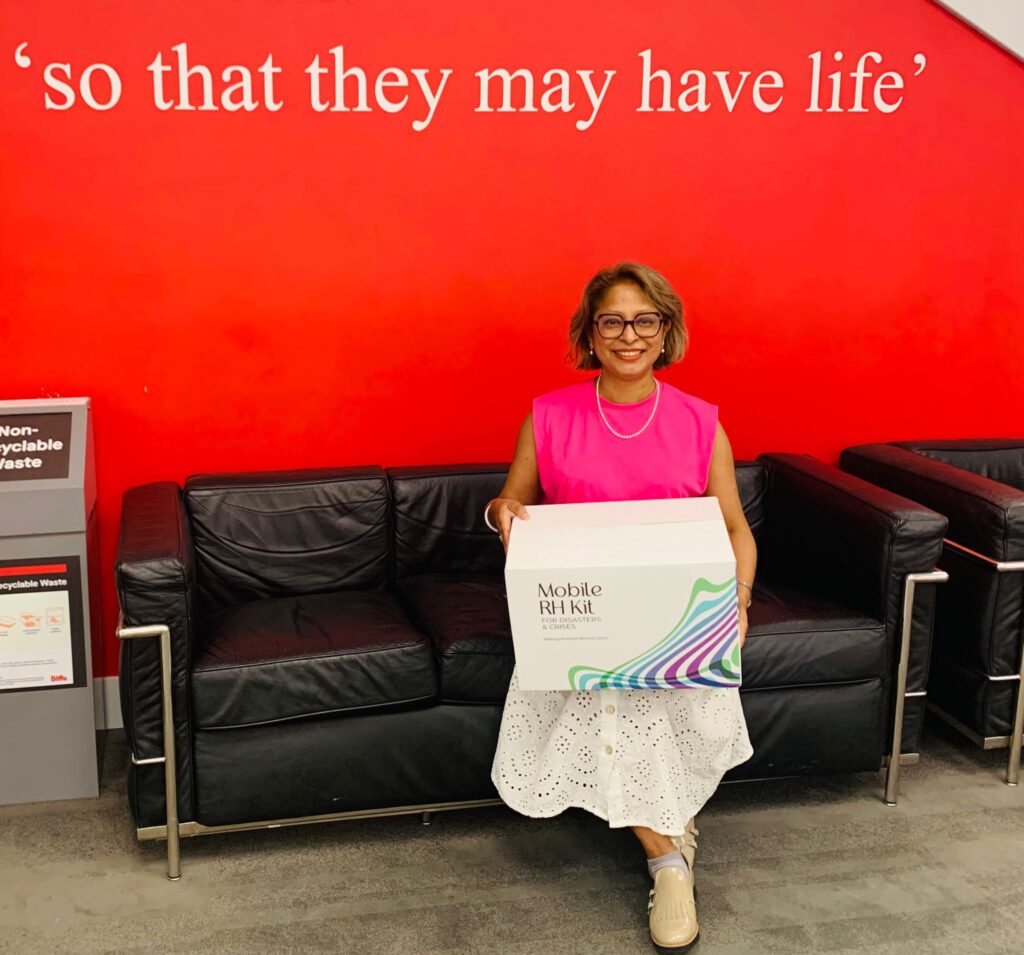
July 20, 2025: As a virtual, global team, we rarely get chance to all meet in person. On 20 July three UK members of the team met, and continued project discussions.

July 2, 2025: Professor Nibedita S. Ray-Bennett and Mr. Maqbul Bhuiyan visited the Kobe City College of Nursing and the World Health Organization Centre for Health Development (WHO Kobe Office) in Japan. They presented the Facility and Mobile Reproductive Health Kits to a group of nursing and midwifery students at the WHO Kobe Office. Dr. Ryoma Kayano, WHO Technical Officer (Health Risk Management), also viewed the content of the Kits.
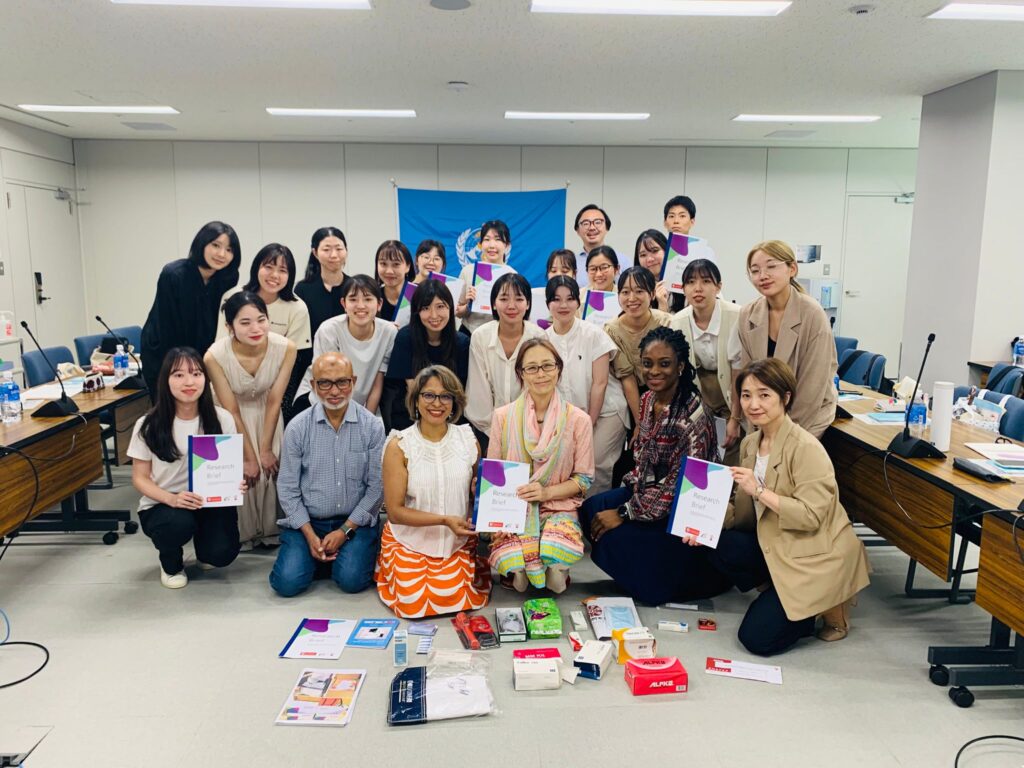
July 1, 2025: Professor Nibedita S. Ray-Bennett, DMA and RHSTEP (two of our partners in Bangladesh) met the Director General Family Planning, and received approval to conduct the piloting phase of the project at government run health facilities in Bangladesh.

July 1, 2025: Professor Nibedita S. Ray-Bennett met representatives from the British High Commission Dhaka and took the Facility and Mobile Kits to demonstrate at Primary Health Facilities in Bangladesh. The Kits received excellent feedback and some useful additional information was gathered regarding the design and contents.




June 25, 2025: Professor Nibedita S. Ray-Bennett travels to Bangladesh to visit Primary Health Facilities that will use the kit, meet representatives from the British High Commission Dhaka to present the project, and to hold a key stakeholder workshop with the Government of Bangladesh.
June 12, 2025: Demo Day! We had a fantastic day with the other Arc Accelerator ESRC/AHRC SHAPE Catalyst programme participants: Professor Nibedita S. Ray-Bennett showed off the Kits in our pitch deck, and we got some invaluable feedback on how to get our life-saving kits out into the world!
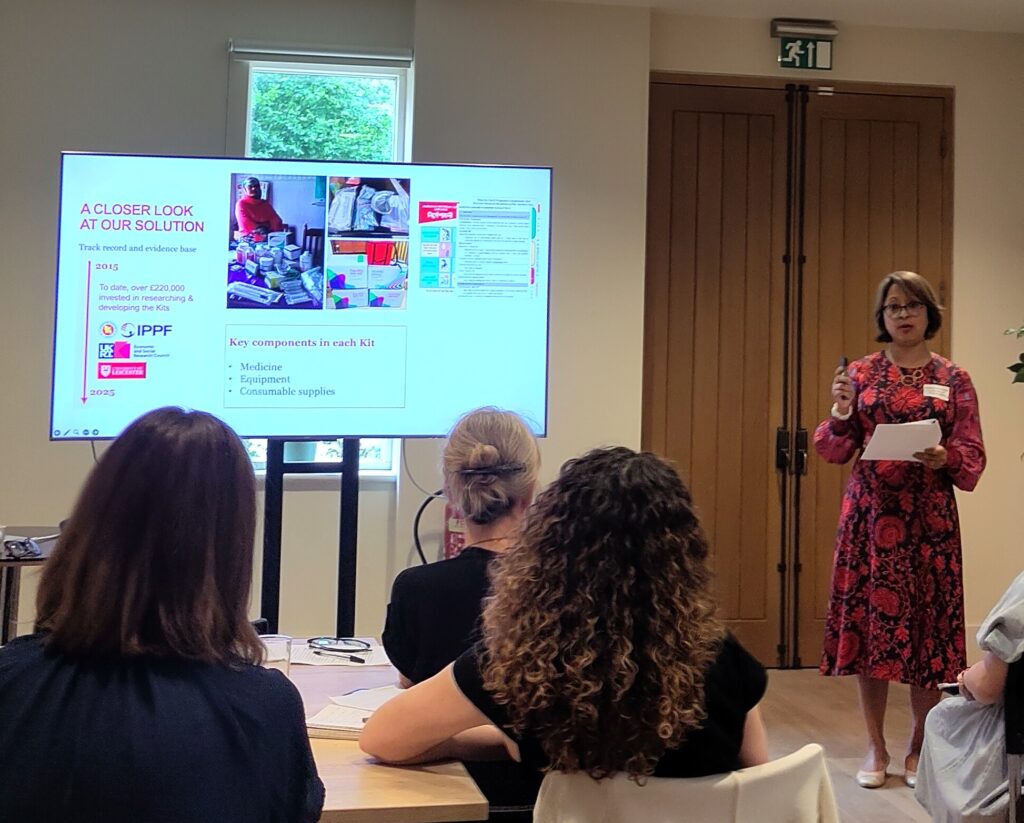
May 29, 2025: The Stakeholder Workshop took place on 27 May, with fantastic engagement from enthusiastic participants. We were delighted to welcome senior and expert participants from across South Asia, Nigeria, Uganda and the UK. Thank you to all those who took part and shared your invaluable insights.
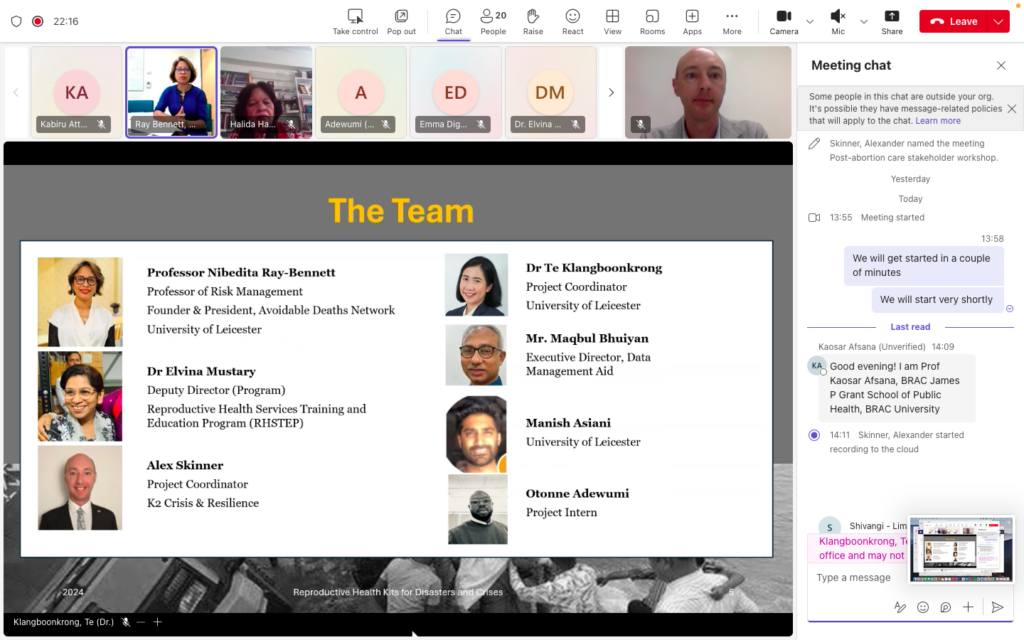
May 27, 2025: We will host our first Stakeholder Workshop for a host of experts from across government, healthcare, NGOs and academia, to gather their insight and expertise, to help us get the Kits launched in the right places and in the right ways. We are excited to hear from everyone!
May 21, 2025: The Stakeholder Workshop to bring the kits closer to rollout received ethical approval on 21 May, from the University of Leicester Ethics Committee.
May 12, 2025: Prof Nibedita S. Ray-Bennett provided an update of the “Facility and Mobile Reproductive Health Kits for Disasters and Crises” to the University of Leicester School of Business REF Impact Coordinators, Professor Nik Hammer and Dr Georgios Patsiaouras.
April 19, 2025: The dates for our stakeholder engagement workshops have been agreed: Tuesday 27 May and Friday 30 May, from 1400-1600 UK time. We are getting in touch with people who have an interest in reproductive health in disasters across South Asia and selected countries in Sub-Saharan Africa. If you would like to be involved, please do get in touch with the project coordinators or ADN on the Join page.
April 7, 2025: The Bangladesh project team met to discuss the next steps in introducing the kits to the disaster response ecosystem in the country.
March 30, 2025: We attended the London Model World Health Organization (LonWHO) to see health issues debated and resolutions agreed, and build our network. We were most interested in hearing the effects of climate change on global health in relation to disasters, and impressed by how future generations aim to tackle this challenge. As climate-related disasters become more prevalent and affect more people, our lifesaving Facility and Mobile Kits will have an ever more important role in saving the lives of some of the most vulnerable people in disasters.
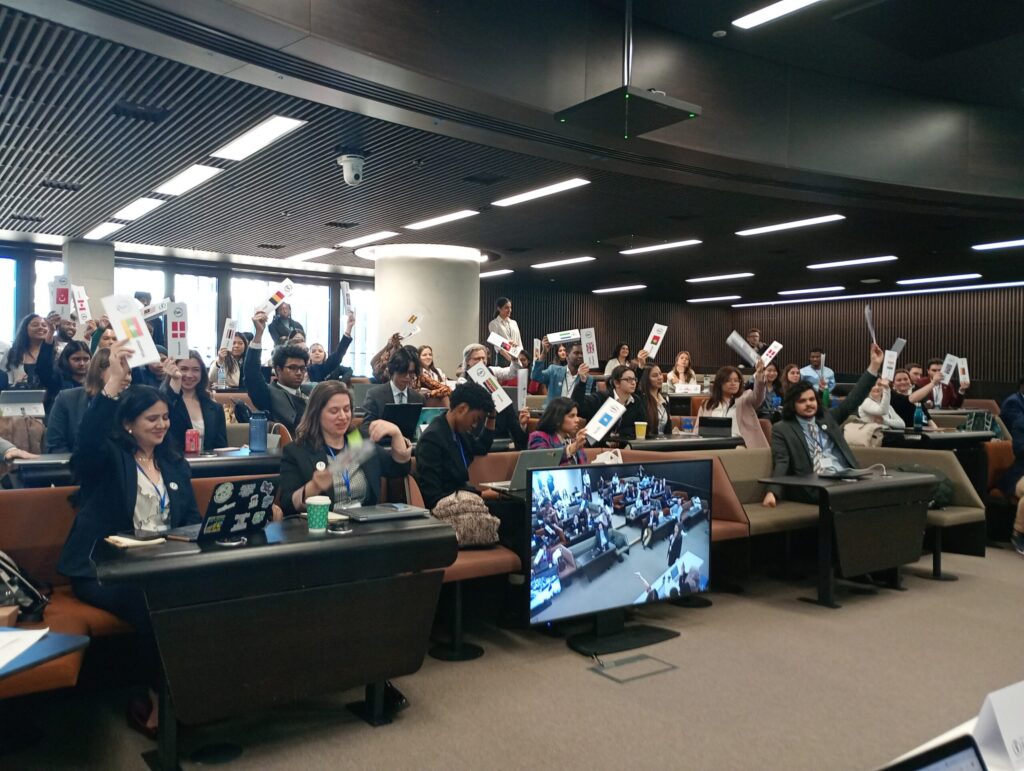
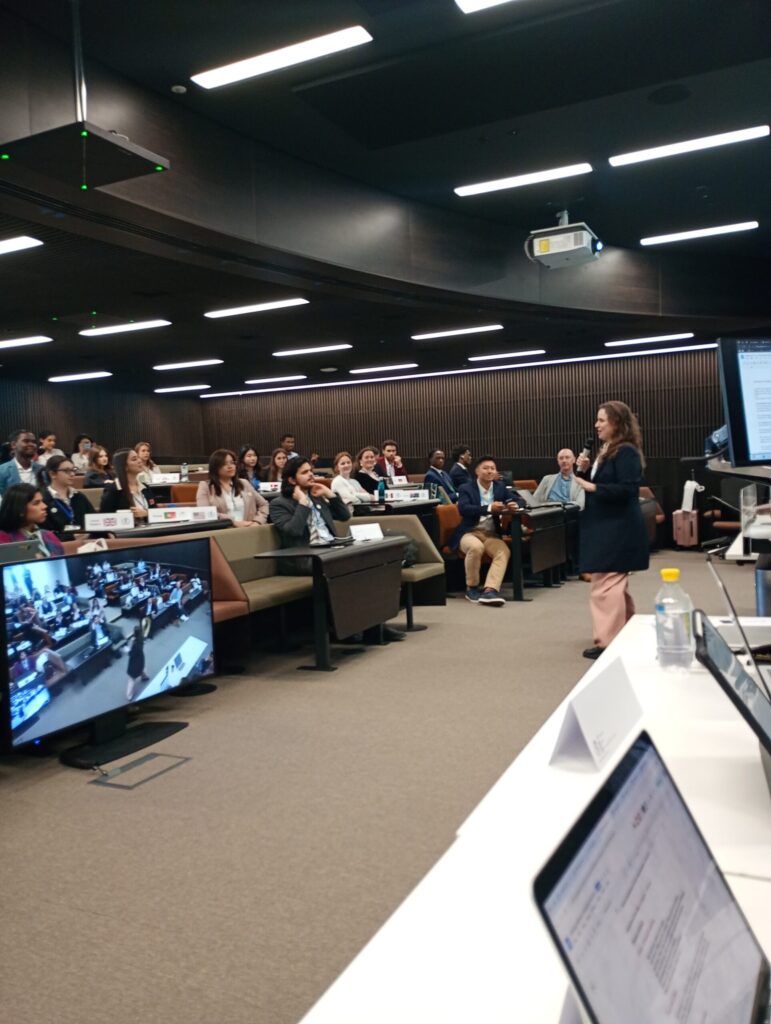
March 17, 2025: The team are well underway with ARC Accelerator trainings on the ESRC/AHRC SHAPE Catalyst programme, and have undertaken six sessions so far. The focus has been on how to present the Facility and Mobile Kits to potential stakeholders to understand their interest and viability.
March 10, 2025: Our press release has gone live, as the project gets underway! https://le.ac.uk/news/2025/march/leicester-lifesaving-abortion-kits-women-asia
March 3, 2025: The project was launched on March 3, 2025!
